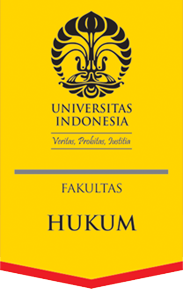DOI
10.21143/jhp.vol47.no2.812
Abstract
Government intervention in environmental management can be considered to fall within CAC instruments. Despite the instruments are the most familiar and practiced, they are criticized since the CAC approach requires too much government intervention. This article observes that government intervention can be justified as an effort to correct market failures. The article also finds that intervention is warranted for some distributive reasons. However, the article also observes possibility that an intervention occurs due to regulatory capture by interest groups, to serve the interest of bureaucrats, or to function as a tollbooth. Indonesian environmental law shows that these CAC instruments still play a major role in environemtal management in Indonesia
Bahasa Abstract
Campur tangan pemerintah dalam pengelolaan lingkungan dianggap sebagai bagian dari pendekatan CAC dan merupakan hal yang sudah biasa ditemukan di dalam praktik. Meskipun merupakan yang secara tradisional paling dikenal dan banyak diterapkan dalam pengelolaan lingkungan, instrumen CAC seringkali dikritik karena dianggap melahirkan terlalu banyak campur tangan pemerintah. Tulisan ini memperlihatkan bahwa campur tangan pemerintah dapat dibenarkan sebagai upaya mengoreksi kegagalan pasar. Campur tangan pemerintah juga dapat dibenarkan berdasarkan perspektif keadilan distributif. Selain itu, campur tangan pemerintah dapat pula dijelaskan dari teori pilihan publik, yang menjelaskan campur tangan terjadi karena regulatory capture, karena keinginan untuk melayani kepentingan birokrat, dan keinginan untuk membuat sumber pendapatan. Hukum lingkungan Indonesia masih banyak menggunakan instrumen CAC sebagai bentuk campur tangan pemerintah dalam pengelolaan lingkungan
References
Buku Atmosudirdjo, Prajudi. Hukum Administrasi Negara. Jakarta: Ghalia Indonesia, 1981. Bell, Stuart; dan Donald McGillivray. Environmental Law: The Law and Policy Relating to the Protection of the Environment, 5th ed. London: Blackstone Press, 2001. Cooter, Robert; dan Thomas Ulen. Law and Economics, 6th ed. New York: Addison-Wesley, 2012. Estrin, S. dan D. Laidler. Introduction to Microeconomics, 4th Edition. New York: Harvester Wheatsheaf, 1995. Faure, Michael. “Environmental Law and Economics”. METRO—Maastricht University, 2001. Faure, Michael dan Goran Skogh. The Economic Analysis of Environmental Policy and Law: An Introduction. Cheltenham: Edward Elgar, 2003. Ferge, Z. “What are the State Functions that Neoliberalism Wants to Eliminate?”, Dalam: A. Anton, et al. (ed.), Not for Sale: In Defense of Public Goods. Oxford: Westview Press, 2000, hal. 181-204. Fiorino, Daniel J. The New Environmental Regulation. Cambridge, Ma.: The MIT Press, 2006. Fisk, M. “Surviving with Dignity in a Global Economy: The Battle for Public Goods”. Dalam: A. Anton, et al. (ed.). Not for Sale: In Defense of Public Goods. Oxford: Westview Press, 2000, hal. 41-63. Gunningham, Neil; Peter Grabosky, dan Darren Sinclair. Smart Regulation: Designing Environmental Policy. Oxford: Oxford University Press, 2004. Heldeweg, Michiel A.; dan René J.G.H. Seerden. Environmental Law in the Netherlands. Alphen aan de Rijn: Wolters Kluwer, 2012. Holmstrom, Nancy. “Rationality, Solidarity, and Public Goods”. Dalam: A. Anton, et al. (ed.), Not for Sale: In Defense of Public Goods. Oxford: Westview Press, 2000, hal. 69-88. Hunter, David; James Salzman, dan Durwood Zaelke. International Environmental Law and Policy. New York: Foundation Press, 1998. Jacobs, Scott H.; dan Jacqueline G. Coolidge. Reducing Administrative Barriers to Investment: Lessons Learned. Washington, DC: World Bank, 2006. Kiss, Alexander; dan Dinah Shelton. Manual of European Environmental Law, 2nd ed. Cambridge: Cambridge University Press, 1997. Kolstad, Charles D. Environmental Economics. Oxford: Oxford University Press, 2000. Laitos, Jan G. dan Joseph P. Toman. Energy and Natural Resources Law. St. Paul, Minn.: West Publishing, Co., 1992. Light, Andrew. “Public Goods, Future Generations, and Environmental Quality”. Dalam: A. Anton, et al. (ed.). Not for Sale: In Defense of Public Goods (Oxford: Westview Press, 2000, hal. 209-225. Lynn, Laurence E. Public Management: Old and New. New York: Routledge, 2006. Mansfield, Edwin. Principles of Microeconomics, 4th ed. W.W. Norton & Company, 1983. Niskanen, William A. “Bureaucracy: A Final Perspective”. Dalam: Reflections of a Political Economist: Selected Articles on Government Policies and Political Processes. Washington, DC: Cato Institute, 2008, hal. 189-205. Ogus, Anthony. Regulation: Legal Form and Economic Theory. Oxford: Hart Publishing, 2004. Pindyck, R.S. dan D.L. Rubinfeld. Microeconomics. London: Prentice Hall, 2001. PN Manado No. 284/Pid.B/2005/PN. Mdo, Republik Indonesia v. PT. Newmont Minahasa Raya dan Richard Bruce Ness (2005). Santosa, Mas Achmad. Good Governance dan Hukum Lingkungan. Jakarta: ICEL, 2001. Shleifer, Andrei; dan Robert W. Vishny. The Grabbing Hand: Government Pathologies and Their Cures. Cambridge, MA: Harvard University Press, 1998. Solberg, Eric J. Intermediate Microeconomics. Plano, Tex: Business Publication, 1982. Soemarwoto, Otto. Atur Diri Sendiri: Paradigma Baru Pengelolaan Lingkungan Hidup. Pembangunan Ramah Lingkungan: Berpihak pada Rakyat, Ekonomis, dan Berkelanjutan. Yogyakarta: Gajah Mada University Press, 2001. Wilkinson, David. Environment and Law. London: Routledge, 2002. Artikel Djankov, Simeon; et al., “The Regulation of Entry”, The Quarterly Journal of Economics, Vol. CXVII (1), February 2002, hal. 1-37. Grolleau, Gilles; dan Sandoss Ben Abid. “Fair Trading in Markets for Credence Goods: An analysis Applied to Agri-food Products”, Intereconomics, Vol. 36(4), July 2001, hal. 208-214. Orts, Eric W. “Reflexive Environmental Law”, Northwestern University Law Review, Vol. 89, 1995a, hal. 1227-1340. Orts, Eric W. “A Reflexive Model of Environmental Regulation”, Business Ethics Quarterly, Vol. 5(4), Oct., 1995b, hal. 779-794. Stigler, George J. “The Theory of Economic Regulation”, The Bell Journal of Economics and Management Science, Vol. 2(1), Spring, 1971, 3-21. Peraturan Perundang-undangan Indonesia, Undang-undang Nomor 30 Tahun 2014 tentang Administrasi Pemerintahan, Lembaran Negara Republik Indonesia Tahun 2014 Nomor 292, TLN Nomor 5601 Indonesia, Undang-undang Nomor 32 Tahun 2009 tentang Perlindungan dan Pengelolaan Lingkungan Hidup, Lembaran Negara tahun 2009 No. 140, TLN No. 5059 Indonesia, Peraturan Pemerintah Nomor 69 tahun 1999 tentang Label dan Iklan Pangan, LN tahun 1999 No. 131, TLN No. 3867 Indonesia, Peraturan Pemerintah Nomor 82 Tahun 2001 tentang Pengelolaan Kualitas Air dan Pengendalian Pencemaran Air, Lembaran Negara tahun 2001 Nomor 153, TLN No. 4161
Recommended Citation
Wibisana, Muhammad Andri Gunawan
(2017)
"CAMPUR TANGAN PEMERINTAH DALAM PENGELOLAAN LINGKUNGAN: SEBUAH PENELUSURAN TEORETIS BERDASARKAN ANALISIS EKONOMI ATAS HUKUM (ECONOMIC ANALYSIS OF LAW),"
Jurnal Hukum & Pembangunan: Vol. 47:
No.
2, Article 1.
DOI: 10.21143/jhp.vol47.no2.812
Available at:
https://scholarhub.ui.ac.id/jhp/vol47/iss2/1

